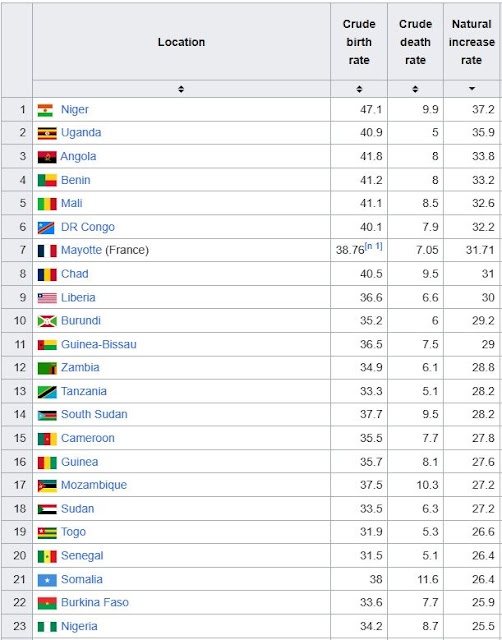How many of you remember Jean-Jacques Rousseau's work, The Social Contract? I had to read it for two different classes in school, so for a while I recalled it pretty clearly. But that was a long time ago, and I haven't thought about it since then. I do remember that I didn't think much of his ideas, and doubtless that is why.
But there was one passage that did stick in my mind, because it was unabashedly empirical, and it felt out of place in the rest of the work. The context is that Rousseau is talking about the various forms of government—monarchy, aristocracy, democracy, and the like—and he asks which is the best? He explains that nobody has ever given a clear answer to this before, because no two authors can agree what criterion of "best" to use. Then he gives his own criterion, and it is breathtaking in its simplicity:
I am continually astonished that such a simple sign [of good government] isn’t recognized, or perhaps men do recognize it but aren’t honest enough to say so. What is the purpose of any political association? The preservation and prosperity of its members. And what is the surest sign of their preservation and prosperity? Their number and their population[-growth]. That’s the sign you are looking for. Other things being equal, the unquestionably best government is the one under which the population increases most, without external help from naturalizing foreigners or establishing colonies. The government under which the population shrinks is the worst. Over to you, Statisticians—count, measure, compare!
⸻The Social Contract, Book 3, Chapter 9, "The Marks of a Good Government."
Now this is simple! These numbers exist. These calculations can be done. What is more, they actually give a pretty consistent answer to the kind of regime that is the best—at least, according to Rousseau. I'm not quite sure Rousseau would be content with the answer, but he might. I do suspect he would be a little taken aback.
To measure population growth, we need to look at two numbers: total fertility rate, and mortality rate. It's no good finding a country with a very high rate of children born, if they then die just as fast. But this work has already been done. The metric we want is called the rate of natural increase: it is calculated by taking the total fertility rate and subtracting the mortality rate. This is Rousseau's key metric for evaluating the relative goodness or badness of forms of government. (Sometimes the same or similar form of government might show up in very different circumstances with different results; so perhaps it is less misleading to speak of the "regime"—a term that collects together the form of government and the way of life.)
Using the RNI data in Wikipedia as of today (Thursday, January 25, 2024), the top 23 countries with the largest RNI are all in Africa:
If you look at the next 33, they are in either Africa, or Oceania, or southwest Asia (mostly in the Middle East):
Only with numbers 57 and 58 do we get countries in the Western Hemisphere: Guatemala and Belize, respectively. The first European country is Kosovo (#133) followed by Iceland (#138). The United States drags in at #165, and Canada at #177. Ukraine limps in at #224 (out of 228 total), but of course there's a war in Ukraine right now and that might affect the numbers.
What does this tell us? What is the great advantage that Niger, Uganda, and Angola have over the industrialized West? I don't know enough about the countries to be sure, but I can hazard a few remarks.
- Poverty does not appear to be an obstacle to a high RNI. Many of the countries near the top of the list are poor.
- Recent warfare does not appear to be an obstacle to a high RNI, as many of the countries near the top of the list have experienced war, civil war, or other political troubles. Active war, of course, reduces RNI by dramatically increasing the mortality rate.
- The lack of political liberty as we understand it in the West does not appear to be much of an obstacle either: Niger, Uganda, and Angola all score pretty poorly on any of the various "freedom indices" in use.
- I wonder about religious faith. Does anybody know if religion is stronger in these countries than in the largely secular West?
What this seems to suggest is that Man thrives in adversity, not security; in want, not plenty. And if that is true, then pretty nearly the whole history of Western political thought has been barking up the wrong tree.
It's a sobering thought, and I don't know how to pursue it right now.
 |
| Copyright Poppytarts. Used on page List of countries by rate of natural increase. This file is licensed under the Creative Commons Attribution-Share Alike 4.0 International license. |
.jpg)


No comments:
Post a Comment